 written by Jennifer Cochran
written by Jennifer Cochran
One new aspect of the Tax Cuts and Jobs Act is the new deduction for owners of sole proprietorships, S corporations, and partnerships. Under the “old” tax code, income from these small businesses would “pass-through” to the owner on her own taxes and were subject to individual income tax rates as high as 39.6%.
For taxable years beginning after December 31, 2017 and before January 1, 2026, an individual taxpayer who owns an interest in a S-Corporation, partnership, LLC, or sole proprietorship may take a new deduction of 20% from the qualified business income. A sole-proprietorship includes income from a Profit or Loss from Business (Schedule C), Income or Loss from Rental Real Estate (Schedule E) or Profit or Loss from Farming (Schedule F).
The term qualified business income means the net amount of income, gain, deduction and loss earned in the conduct of a trade or business within the United States. It doesn’t include income from interest, dividends, or capital gains or losses from the sale of investments.
The deduction for pass thru businesses will be separated into two separate business types, non-service based, and service based.
Non-Service Based
If your taxable income is below threshold of $315,000 for MFJ or $157,500 for all other taxpayers, you can take a deduction of 20% of your income from a qualified business (QBI). Below is example of the calculation for taxpayers below these thresholds.
Example: S-Corp A shows income of $100,000 for shareholder X on the K-1, shareholder X taxable income on his 1040 is 150,000. Shareholder X would be able take a deduction of $20,000 on his return since his income is below the thresholds: $100,000 X 20%=$20,000.
If your taxable income exceeds the thresholds of $315,000 and 157,500, you are subject to a phase out of the deduction based on wages and unadjusted basis of depreciable property.
Service Based
A service based business is defined as a trade or business involving the performance of services in the fields of health, law, accounting, consulting, financial services, brokerage services, or any trade or business where the principal asset of such trade or business is the reputation or skill of one or more of its employees, or which involves the performance of services that consist of investing and investment management, or trading or dealing in securities. However, a trade or business that involve the performance of engineering or architectural services is not a specified service.
If you are specified service business, you are allowed the 20% deduction if your taxable income is below the $315,000 and $157,500 thresholds. If your income falls between $315,000- $415,000 married filing jointly and $157,500- $207,500 for other taxpayers, you are subjected to a phase out of the deduction based on wages and unadjusted property. If your income exceeds $415,000 and $207,500, the deduction is disallowed.
The main difference between service based business and non-service based business is that the deduction is eliminated at the income levels of $415,000 MFJ and $207,500 for service based business. Non-service based business over these limits are subject to decreased deduction based on wages paid by the entity, but the deduction is not eliminated.
The calculation for this deduction can be quite complex based on the number of passthrough entities, your income level and the amount of wages paid by the passthrough and the unadjusted basis of depreciable asset owned by the passthrough entity.
We can run the calculation to estimate the deduction that will be available for you. Please contact us you have any questions 417-881-0145.

